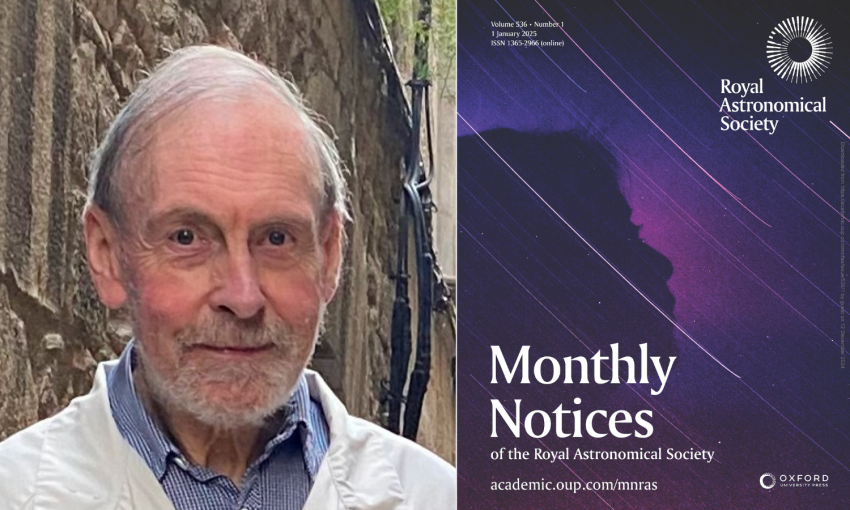The Editor-in-Chief of Monthly Notices of the Royal Astronomical Society (MNRAS), Professor David Flower, is to step down after more than a decade in the role.
He will remain in post until the end of 2026 but a recruitment process for his successor will begin later this year.
Professor Flower first joined the MNRAS Editorial Board in 1985 and took over as Editor-in-Chief in 2012, overseeing a board of then 16 editors.
Ian Russell, Executive Director of the Royal Astronomical Society (RAS), said: "On behalf of the Society I would like to thank David for his astounding 40-year tenure as a member of the Editorial Board of MNRAS and – most importantly – his stewardship of the journal for more than a decade as Editor-in-Chief.
"Under his leadership, the journal has cultivated its reputation for thorough, fair and constructive peer review and developed its reputation as one of the leading research journals in astronomy.
"On a personal note, I have known David for more than 30 years, benefited from his wisdom and sound judgement, and greatly enjoyed his dry wit. The Society owes him a huge debt of gratitude."
Last year Professor Flower oversaw a challenging time as MNRAS, along with Geophysical Journal International (GJI), moved to Open Access – enabling everyone in the global community to have free, immediate, and unrestricted access to the high-quality research published within it.
This means authors are now charged a fee to publish their science, rather than the journal being supported by subscription fees.
First published in 1827, MNRAS is one of the world's largest and most prestigious astronomy journals. It features the results of original research in astronomy and astrophysics, including work which is observational or theoretical.
The peer-reviewed scientific journal is published by Oxford University Press on behalf of the RAS.
Professor Flower is an Emeritus Professor in the Department of Physics at the University of Durham. His research interests include the physics and chemistry of the interstellar medium, particularly the processes occurring in regions of star formation, such as shocks.
He also calculates some of the basic atomic and molecular data that are required to interpret observations of atomic and molecular spectral lines.
An announcement about the recruitment process for Professor Flower's successor will follow in due course.
ENDS
Media contacts
Sam Tonkin
Royal Astronomical Society
Mob: +44 (0)7802 877 700
Images & captions
Caption: Professor David Flower is to step down as Editor-in-Chief of Monthly Notices of the Royal Astronomical Society.
Credit: David Flower
Notes for editors
About the Royal Astronomical Society
The Royal Astronomical Society (RAS), founded in 1820, encourages and promotes the study of astronomy, solar-system science, geophysics and closely related branches of science.
The RAS organises scientific meetings, publishes international research and review journals, recognises outstanding achievements by the award of medals and prizes, maintains an extensive library, supports education through grants and outreach activities and represents UK astronomy nationally and internationally. Its more than 4,000 members (Fellows), a third based overseas, include scientific researchers in universities, observatories and laboratories as well as historians of astronomy and others.
The RAS accepts papers for its journals based on the principle of peer review, in which fellow experts on the editorial boards accept the paper as worth considering. The Society issues press releases based on a similar principle, but the organisations and scientists concerned have overall responsibility for their content.
Keep up with the RAS on Instagram, Bluesky, LinkedIn, Facebook and YouTube.


